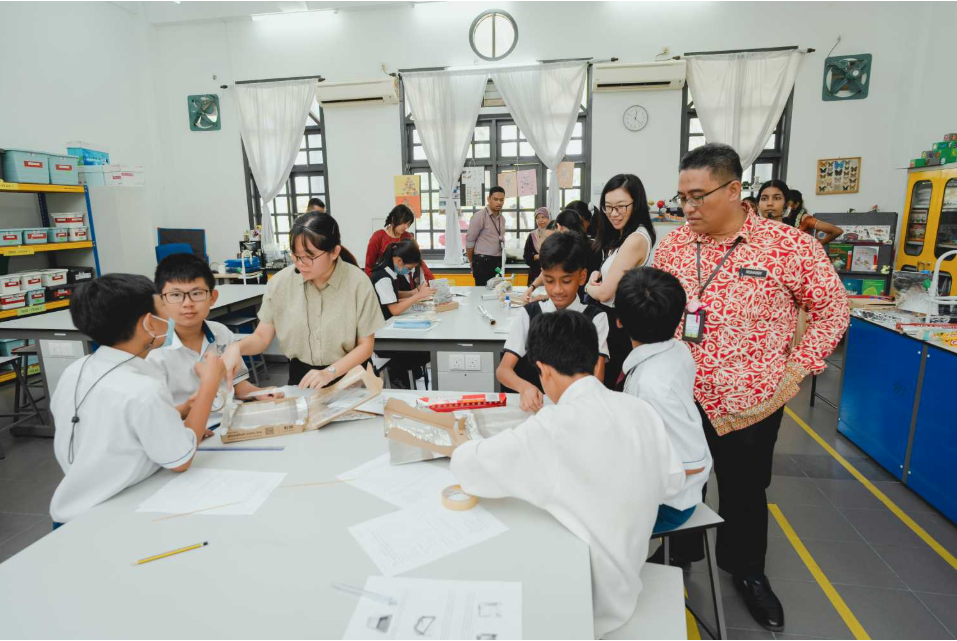PETALING JAYA: More parents are sending their children to private schools – especially international schools, with enrolment hitting nearly 70,000 last year.
If unaddressed in the upcoming 2027 school curriculum reform, this will lead to a growing gap between the quality of education in private and national schools, stakeholders warn.
Stakeholders say the trend points to a growing gap between private and national schools in funding, facilities and flexibility, which the Education Ministry needs to address with reforms such as the upcoming new school curriculum for 2027.
According to figures from the Department of Statistics Malaysia (DOSM), enrolment of local children in international schools located throughout the country went up by 18.2% in 2024 compared to the year before, from 57,363 to 67,821.
Other types of private schools which also saw strong growth in popularity among Malaysians were special education schools, which recorded a 32% jump from 728 students to 966; and academic secondary schools, whose enrolment rose 16.7% from 13,862 to 16,173.
A total of 216,513 Malaysians were enrolled in all types of private schools in 2024, while the number of students at national schools was at 4.8mil.
Universiti Utara Malaysia School of Education senior lecturer Dr Muhammad Noor Abdul Aziz said the rising demand for private schools is not a temporary spike; it is a sustained pattern.
Many believe private schools offer globally aligned curricula with consistent standards, he said.
“Another reason parents are attracted to private schools is because of the perceived challenges in national schools such as overcrowding, limited facilities and the ‘teach-to-test’ culture.
“If we’re not careful, it could deepen educational inequalities,” he said, adding that the increase in demand for private education will likely continue among urban parents able to afford the fees.
Muhammad Noor, however, said the growing popularity of private schools does not mean an
erosion of public confidence in national schools.
“What we’re seeing is stratification – families with different means and aspirations are choosing different paths,” he said.
He said the government needs to do more to upgrade government school facilities, expand English proficiency programmes, strengthen student support services and adopt more flexible, student-centred teaching methods.
“Parents want a relevant curriculum that is embedded with modern skills such as critical thinking, digital literacy, and global competencies.
“National schools can deliver these, but it requires resources, autonomy and a strong professional development programme for teachers,” he said.
The 2027 school curriculum, he added, has potential to strengthen confidence in national schools but parents will want to see real improvements before the they start taking their children out of private schools.
National Union of the Teaching Profession secretary-general Fouzi Singon said the new curriculum is expected to inspire confidence among teachers, students, and parents.
“Although the curriculum will be based on research and extensive engagement, theoretical improvements made to fix old weaknesses may still take time for the community to accept and understand,” he said.
Fouzi said the trend of sending children to private schools is driven by economics.
“This is not because we are facing a crisis (in our national education system).
“Parents who can afford private schooling are buying comfort, facilities and flexibility.
“That doesn’t mean national schools are failing,” he said, stressing that country’s 10,000 national schools continue to produce top-performers despite the challenges.
“This track record reflects the commitment, capability, and impact of the national education system.
“Comparing national schools to private schools is not fair when the resource levels vastly differ,” he said.
National Association of Private Educational Institutions deputy president Dr Teh Choon Jin said many parents opt for private schools as they want smaller classes and better facilities.
He said the rise in enrolment at special education schools reflect existing gaps between private and national schools.
“When a child needs therapy or individualised learning, parents will move mountains to provide immediate support,” he said.
At the secondary level, Teh said the pressure of high-stakes exams, such as the Sijil Pelajaran Malaysia, drives some parents to look for environments with clearer pacing and more holistic assessment.
“They feel private secondary schools offer a calmer, more structured pathway,” he said.
By comparison, Thailand only has 77,734 students enroled in international schools as of June 10, 2024, according to the country’s Office of the Private Education Commission, while the Singapore government’s open data portal shows 21,200 students enrolled at its private schools.
According to ISC Research, which tracks the global international schools market, enrolment at international schools in Singapore rose by 15% in July 2025 compared to July 2020.
ISC Research said Asia continues to dominate the sector with 58% of the world’s schools based in the region.
Private schools in Malaysia are non-governmental, privately funded institutions supervised by the Education Ministry.
They include private, religious, expatriate, and special education schools, as well as international schools, which follow a foreign curriculum, use English as the medium of instruction, and admit both Malaysian and non-Malaysian students.
In 2023, Education Minister Fadhlina Sidek told Sunday Star the ministry does its best to provide
quality facilities and teachers in national schools which were in no way inferior to private schools.
She was responding when asked about the rising number of middle-income parents sending their children to private schools.
On Oct 22, Fadhlina said the ministry would be conducting nationwide roadshows starting next year to gather input for the 2027 school curriculum.

